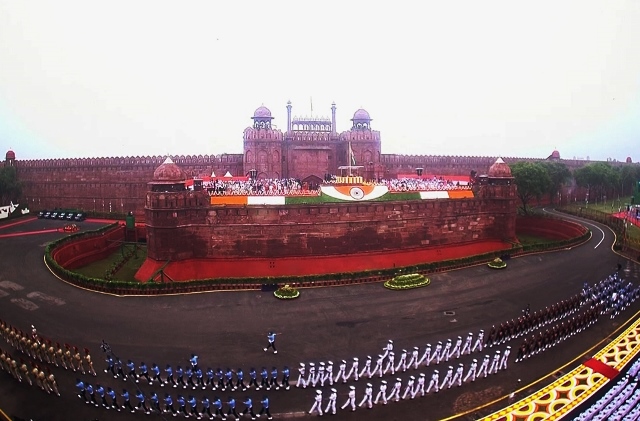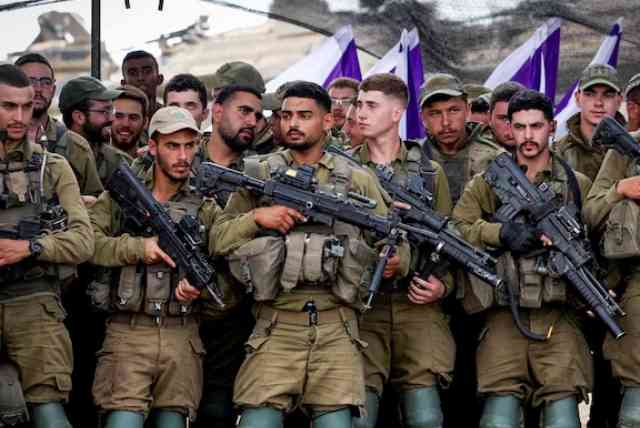
Why India Should Rename Independence Day As Union Day
Independence Day is a reminder to the world that India is still here despite the doom mongers who predicted its implosion a few years after 1947. Not only surviving but thriving. For many Indians, it is a great sight to see their Prime Ministers standing at the plinth in the iconic Mughal Red Fort that has defined old Delhi for centuries.
15th August 1947 was indeed a triumph of an old civilisation over a new colonising force. Empires have survived for hundreds (Mughal) and thousands (Romans) of years. But Indians were able to bring the British Empire to an end within 200 years.
Gandhi’s strategy was genius. He understood the British more than the British did. In spite of the accolade of the non-violence and peace attached to his name, Gandhi was neither a fanatic peace nor a non-violent man. He used it as a strategy.
Gandhi had understood that the British are a warrior race. A masculinised violent struggle would have taken a long time. The British relish wars. They had shown their genius in war by dividing, inducements and calculated incremental expansion, finally taking over the whole of India within a century after landing at Calcutta despite legendry communities like Sikhs, Marathas, Rajputs etc. So Gandhi feminised the ‘freedom movement’ against which a warrior becomes hopelessly confused.
To mobilise the masses, Gandhi created a campaign against ‘impurity’, a concept deeply embedded within Indian religions. Gandhi gave it a different meaning, that the foreigner was the impure threatening the spiritualism and purity of Bharat. Satyagraha was a brilliant slogan that resonated with ordinary Indian. To the British and western educated Indians, it was presented in double speak translating strategically to mean force of non-violent resistance. The word ‘Satya-Agraha’ does not really translate into that.
And under him, Congress also understood that the British like Triumphalism more than victory. That was handed to them on 15th August 1947 in a a day full of pomp and ceremony. In defeat, the British were metamorphically garlanded and made to feel triumphant that they had ‘handed power peacefully’ to a generation of Indians educated and trained by them – A class that had passed the test and worthy of taking on. Mountbatten left with a theatrical dignity. The rest of the Empire collapsed within twenty years.
The leadership had encouraged a strong lobby in the USA to persuade America to pressurise Britain to end colonialism. After the Second World War, America’s financial help to Britain was conditionally linked to decolonisation.
Violent struggle also played a considerable part in pushing the British. The British understood that the resistance was becoming more widespread with groups such as the Ghadars and with even mutinies in the army and navy on top of the Indian National Army of Bose and Singh. Ruling India would have needed a lot of war weary British to go over to India after the end of World War II.
ALSO READ: Bharat, India Or Hindustan?
Independence Day in 1947 in a way was a victory of a people with a vast hinterland of culture, political depth, philosophical ideas and wisdom over a new comer to the world of civilisations.
But continuing to call it Independence Day is somewhat demeaning and giving too much credence to a mere 200 years in the thousands of years of civilisation in South Asia. There have been many invaders and conquests of India. They all passed away into history. including the British. There is no need to continue to give this much importance to the British period by celebrating ‘independence’ day 78 years later as if a ‘mature and capable’ India was really a master creation of the British. If anything, the freedom struggle was a masterclass in how ancient civilisations continue to have a deep well of skills, intelligence and intellect that they can deploy when threatened.
There is an alternative narrative that has never been articulated. It is more powerful and one that Indians can be very proud of. It is that with great political skill, diplomacy, cultural persuasion, intellect and dexterity born of thousands of years of ideas, people like Vallabhbhai Patel and even Gandhi, were able to persuade the disparate regions, communities, Kingdoms, faiths and races of India to come together and believe in a common future.
The real story of 15th August is the forging of the Union as never before in history. It succeeded despite efforts by many, particularly the British, to sow violence and divisions. These incredible minds within India’s political parties worked hard and worked together to defy odds and create the Union of India.
The many divisions that had allowed the region to be conquered by invaders from Alexander, the Mughals to the British among many, had finally been set aside to come together in a Union. Unity in diversity was the slogan much heard in India. While remaining different, the different peoples of India also came together.
That is the more profound and positive story to tell about 15th August. The country has continued as a Union with 23 languages, very different cultural regions, different racial features and different cuisines as well.
Calling the independence day as Union Day will be a great commemoration of the strength of South Asia’s civilisation and its ability to coexist with differences. It will genuinely reflect the victory of Indians over the divisions that fragmented them through design.
Union Day will give all regions a proper perspective and a desire to celebrate their commitment to their common issues, collective efforts to tackle shared challenges and hopes and purpose to find empathy with 15th August.
Independence day was Nehru’s day. He was the product of British India. Most Indians do not connect with ‘independence’ day. That is not how Indian civilisation has evolved over centuries and thousands of years.
Prime Minister Modi, can change the narrative now and make people of Bharat proud to have forged a Union against all odds. They just have to glance at Europe. Despite many efforts, Europeans have still to create a proper Union. The British even came out.
Rename independence day as Union Day. It will be the greatest honour to Bharat really is. Cut the umbilical link to colonialism. Bharat has to come into its own and proudly shape its future without the baggage of British raj. If there is a need to call it in Hindi, why not call it Bharat Sangh Divas!



